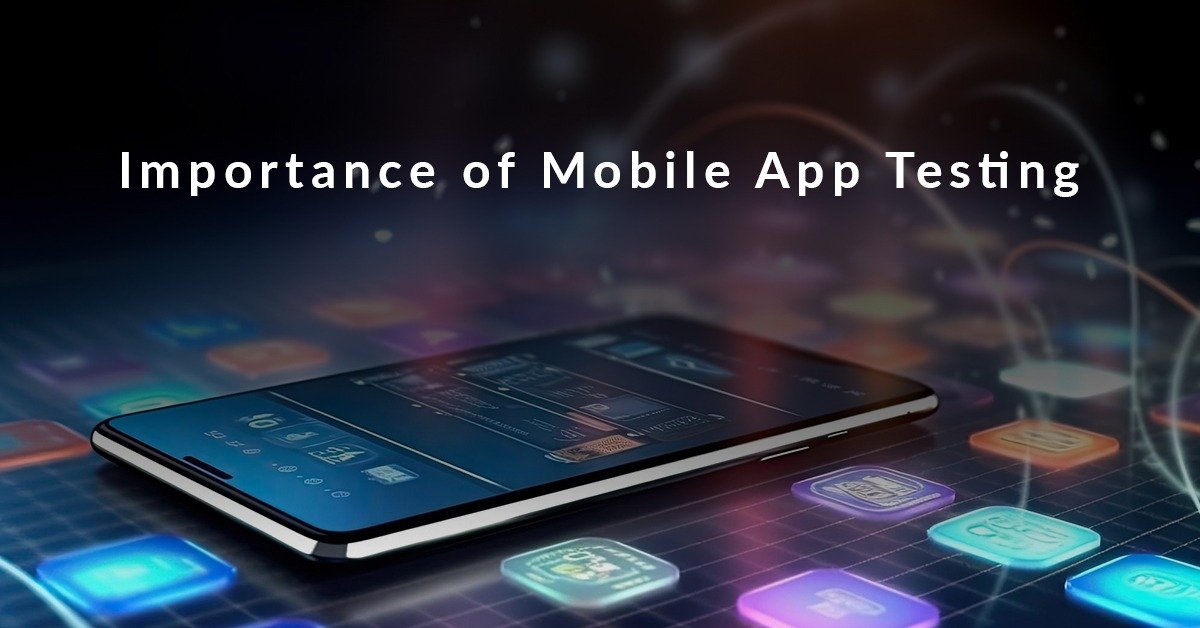The Critical Role of Mobile App Testing
Mobile applications have become deeply integrated into our daily lives, with users trusting apps to handle sensitive information, enable banking transactions, store personal photos, and more. As reliance on apps for banking, shopping, and communication continues growing exponentially, comprehensive mobile app testing is imperative to ensure functionality, security, and quality user experiences.
However, without rigorous testing protocols in place, mobile apps can pose serious functionality and security risks that erode user trust. Blending internal mobile application testing with external services strikes an optimal balance between agility, objectivity, and budget. Users reward great app experiences with loyalty, engagement, and revenue. We will delve into the overall testing process for mobile apps, with a detailed focus on approaches like security testing, and emphasize the growing need for comprehensive mobile app testing from development teams or professional services.
Neglecting proper testing has stark consequences – a recent study found that 56% of apps exhibit multiple high-severity flaws. Such vulnerabilities expose sensitive user data, undermine credibility, and can irreparably damage adoption rates if breaches occur post-launch. By prioritizing rigorous mobile application testing methodologies, both in-house and via specialized mobile app testing service providers, development teams mitigate significant technical debt and protect user trust.
Covering the Mobile Testing Landscape
Myriad testing types across the mobile app lifecycle ensure holistic evaluation, including:
Functionality Testing – Validates all core features and UI components operate correctly.
Usability Testing – Assesses ease of navigation and workflows by observing real users.
Compatibility Testing – Ensures consistency across diverse devices, OS versions, and screen sizes.
Performance Testing – Stresses response times and stability under varied conditions.
Security Testing – Identifies vulnerabilities to safeguard sensitive user data.
Expert Testing Services Close Critical Gaps

While internal teams toggling between feature development and testing roles certainly helps, partnering with specialized mobile app testing service providers markedly improves consistency, efficiency, and coverage. Moreover, Professional mobile testing teams possess domain expertise from evaluating hundreds of mobile apps, maintaining up-to-date knowledge of platforms and guidelines, and leveraging test automation to accelerate repetitive checks. Third-party mobile app testing service providers also enable unbiased assessment of security vulnerabilities or UX issues around confusing flows. Though adding budget, outsourced testing pays dividends through higher quality, security, and user adoption.
While complementing internal QA teams is prudent for testing mobile applications, seasoned 3rd party testing services provide specialized domain expertise plus mobile initiatives with unbiased objectivity. Key benefits include:
Comprehensive Security Assessment – External experts spend immense time exclusively focused on evolving attack techniques, lending a unique perspective to hardening mobile apps.
Real User Validation – Specialized vendors maintain device labs with extensive combinations of phones, carriers, and OS versions for fine-grained compatibility testing difficult for most teams to emulate.
Test Automation – Experts develop automated scripts tackling tedious yet essential test cases that maximize coverage and free up internal resources.
The mobile app testing landscape covers a range of testing types that validate functionality, user experience, performance, security, and compatibility across various devices and OS versions. Furthurmore, Some examples include unit testing to verify individual components, integration testing to check interoperability between app modules, and beta gathering real user feedback before launch.
Security Remains Front and Center

With exponential growth in cyber threats, mobile app security testing is paramount. Compromised apps expose user data, undermine brand credibility irreparably if breaches occur, and can elicit catastrophic legal/financial implications.
A recent study found over 50% of mobile apps exhibit at least two high-risk security flaws. Mobile app security testing often reveals vulnerabilities like broken authentication systems, lack of encryption for sensitive data, and susceptibility to attacks like code injection and brute force hacking. Neglecting mobile app security testing can expose sensitive user data, enable cybercriminal activities, and irreparably damage app credibility and adoption rates if breaches occur.
Overall, a holistic testing approach is mission-critical for any organization building mobile apps today, considering the potential technical debt accrued by neglecting testing debt. When balanced against typical benchmarks, investing 10-20% of the total development effort into testing mobile applications delivers substantial ROI through reduced production defects, enhanced security, and improved user trust. Teams that institutionalize testing early see compounding benefits over multiple software releases.
Rigorous mobile application testing delivers a multiplicity of advantages from improving user experience to securing sensitive user data. Testing mobile applications works best when adopted holistically from project inception and conducted by independent resources, either internally or via managed services. As mobile applications continue proliferating amidst fast-paced development, prioritizing testing will only grow more pivotal.
At Motivity Labs, we understand the importance of mobile app testing and offer cutting-edge solutions. Contact us to iterate, innovate, and take your mobile infrastructure to the next level.



